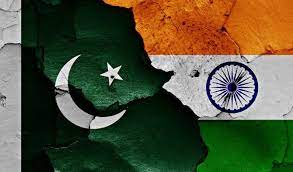What would be Keir Starmer’s stance on Kashmir after Labour’s win in UK election?
Keir Starmer, the newly elected Prime Minister of Britain, has significantly shifted the Labour Party’s stance on the Kashmir issue. Under his leadership, the party now emphasizes that Kashmir is India’s internal matter and should be resolved through peaceful bilateral dialogue between India and Pakistan1. Starmer’s commitment to a “new strategic partnership” with India includes areas like security, education, technology, and climate change, as outlined in Labour’s 2024 election manifesto1. His approach reflects a changed Labour Party, focused on shared values and cooperation with India1. As the UK undergoes this political transition, Starmer’s pragmatic approach could have implications for the Kashmir issue and India-UK relations
Meanwhile, Indian Prime Minister Narendra Modi congratulated Keir Starmer on Friday (Jul 5) for his “remarkable victory” in Britain’s general election, but New Delhi will be keenly looking at the regime change and will also analyse what it means for India-UK ties.
In 2019, Labour passed an emergency motion on Kashmir at its annual conference which led to offence to some British Indians and India itself. The motion, which was passed under the leadership of Jeremy Corbyn, claimed that there was a humanitarian crisis in the Kashmir region.
The party had also claimed that the people of Kashmir should be given the right of self-determination and also called for international monitors to be allowed into the region. In a letter, then Labour Party chairman Ian Lavery promised that “the Labour Party will not take a pro-Indian or pro-Pakistan stance on Kashmir”.
The letter added, “We are adamant that the deeply felt and genuinely held differences on the issue of Kashmir must not be allowed to divide communities against each other here in the UK.” “Kashmir is a bilateral matter for India and Pakistan to resolve together by means of a peaceful solution, which protects the human rights of the Kashmiri people and respects their right to have a say in their own future,” he added.
However, with time, a change in stance is also expected and Starmer is also certain that tensions must be eased considering the importance of the UK’s relationship with a rapidly expanding economy such as India.
During public speeches and meetings with the Indian diaspora, Starmer, in fact, underlined that Kashmir is an internal matter of India and will be handled by both neighbours. Labour Party’s manifesto mentioned that it looks for a “new strategic partnership” with India. PM Modi has also said that he looked forward to “positive and constructive collaboration” with Starmer to foster “mutual growth and prosperity”.
PM Modi praises Sunak
Besides congratulating the Labour leader, PM Modi also praised Rishi Sunak for deepening bilateral ties. “Heartiest congratulations and best wishes to @Keir_Starmer on the remarkable victory,” Modi wrote on the social media platform X.
“Thank you @RishiSunak for your admirable leadership of the UK, and your active contribution to deepen the ties between India and the UK during your term in office. Best wishes to you and your family for the future,” he added.
Meanwhile, Labour won some 412 seats, an increase of 211, while the Conservatives, lost about 250 lawmakers, including a record number of senior ministers and former Prime Minister Liz Truss.
In a victory speech, Starmer said: “We did it”. “Change begins now … We said we would end the chaos, and we will, we said we would turn the page, and we have. Today, we start the next chapter, begin the work of change, the mission of national renewal and start to rebuild our country,” he added.
Here are the key points regarding Keir Starmer’s stance on Kashmir:
- Internal Issue: Starmer acknowledges that Kashmir is an internal issue for India and Pakistan to resolve peacefully. He emphasizes that any constitutional matters in India are the responsibility of the Indian Parliament.
- Policy Adjustment: Realizing the importance of ties with India, Starmer aims to fix past missteps made by his party. His manifesto includes a commitment to pursue a “new strategic partnership” with India, focusing on trade agreements and cooperation in technology, security, education, and environmental issues.
- Outreach Efforts: During his poll campaign, Starmer denounced Hinduphobia and celebrated cultural festivals like Diwali and Holi. These efforts aim to rebuild trust with the British-Indian community and foster stronger business ties with India.
- Progressive Realism: The Labour Party, out of power for over a decade, now follows a foreign policy of “progressive realism,” emphasizing pragmatic approaches to global challenges such as climate change and international security.
Inputs / Source



